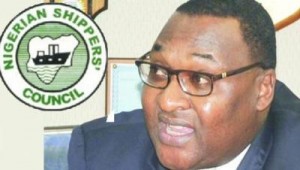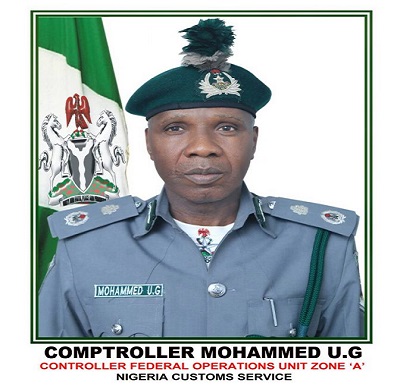SHIPPERS GUIDE
How To Promote Efficiency In Trade Facilitation

Barr, Hassan Bello is the Executive Secretary/ Chief Executive Officer (CEO) the Nigerian Shippers’ Council (NSC). In this interview with MMS Plus on Shippers’ Guide he enlightens you on the essence of the Council and how the Shippers’ Council promotes the interest of importers and exporters in trade facilitation.
What is the purpose that necessitated the establishment of NSC?
We have been prominent, but a lot of people still do not understand the dynamics and economic impact of the creation of the Nigerian Shipper’s Council (NSC) and what we do today.
The Nigerian Shippers Council was created in 1978 to provide a protection of interest of shippers and when we say shippers, we mean importers and exporters on matters affecting the shipment of import and export to and from Nigeria and to advice the federal government on all matters relating to freight rate, terms of payment, port charges, facilities and generally problems of the shipping industry in Nigeria.
As you are aware, transport is a critical determinant in the conduct of international trade and impacts on national economics. The availability, quality, cost and efficiency of transport services influence the trading environment and the competitiveness of export goods on the international market as well as the cost of imported goods.
In this regards, NSC serves as an agent for economic development, through interventions in cost moderation and cargo transport issues, resulting in positive impact on inflationary trade in the country. The high loss of inefficiency of transport and related services impose a burden on the standard of living of the citizenry and per capita income as added transport costs are transferred to the consumer, ultimately.
Now before the 1978 establishment of the council and shippers councils elsewhere, trade was characterized by deteriorating quality of shipping services and unmitigated increase in ocean freight rate by foreign ship owners who operated schedule liner services to Nigeria ports.
They call the shots and the scale is tilted in their favor against the unprotected shippers, when we said service providers we mean terminal operators, carriers, that is, the people who own ships, big banks, and insurance companies. Now cargo, all these issues revolves around the cargo yet the owner of the cargo is the least represented.
What will it take for shipping to thrive?
Shipping cannot thrive without equilibrium or balance that is why shippers’ councils all over the world were established. The United Nations called for liner conferences which is a new world maritime order which was confirmed by United Nations Conference on Trade and Development (UNCTAD) in new Delhi, the first was in Cote de voire in 1968, before Nigeria, in 1978, when NSC was established. Other countries that followed suit are; Cameroun, Kenya, Ethiopia, Liberia and Chad, so it is the practice now for countries to establish shippers’ council, so as to bring equilibrium in shipping.
Specifically what is the responsibility of Shippers’ Council?
The Council is to ensure efficient and timely delivery of shipping services to importers and exporters by shipping services providers under a conducive economic arrangement, moderation and stabilization of costs. The practitioners are enlightened on international trade issues both at the macro and micro levels and regular reliable advises to the Federal Government on matters affecting the shipment of goods. So, the NSC is an agency under the Federal Ministry of Transport.
The law that establishes the Council states that NSC is to advise the government on matters relating to structure of freight rates, to the availability and adequacy of shipping services, frequency of service terms of shipment, class and quality of vessels, port charges, facilities and other related matters.
Considering that the shipping industry is so wide how is the Council able to cover all areas of shipping?
We have the structure that is wide enough to handle all areas of shipping and they are all very active in their departments, we have; commercial shipping, consumer affairs, corporate planning, finance, inland transport and the legal service department.
Our organsational structure has a head office in Lagos, Abuja liaison office and then we are spread all over the nation because shippers are also in the hinterland, it is not only in the coastal area that there are shippers, as a matter of fact movement of goods extends beyond the coastal area.
Shippers are found in Bernin Kebi, as they are found in Isi Ala Ngwa in Abia State. So we need to take care of shippers throughout the federation and modern ways of doing this is that we have door to door delivery of services now.
What are the regulations guiding the Council?
We have other subsidiaries like freight stabilization, fees regulation, which is the source of funding for NSC, local shipping services regulation 1997, inland container depot regulation and regulation on the port economic order.
We have our relationships with other organizations all over, and the Nigeria Customs Service (NCS) is one of the agencies we have relationships with. Freight forwarding companies, stevedoring companies, cargo consolidators and many other interests.
What are the services rendered by the Council?
Some of the services we render include stakeholders support services, representation services, advisory, advocacy, research, information services, education and enlightenment services.
We have also initiated some key projects like the cargo defense fund and this cargo defense fund is, for example, a kind of legal aid where we support claims by shippers because to pursue claims especially through the courts are very expensive, so we subsidize that so that shippers would not abandon their claims and this is not only in Nigeria but also in abroad where we have trading partners.
We have inland container depot, container freight stations, which we are promoting. We have tuck transit parks, we have advanced cargo declaration international tracking notes which we are about to start, port service support portal, trade data base.
We have many organizations with our trade data base because information is important, the community system single window, which the Customs is the chief promoter, we are also part of the technical committee. We have border information centers which we established with the assistance of Customs.






